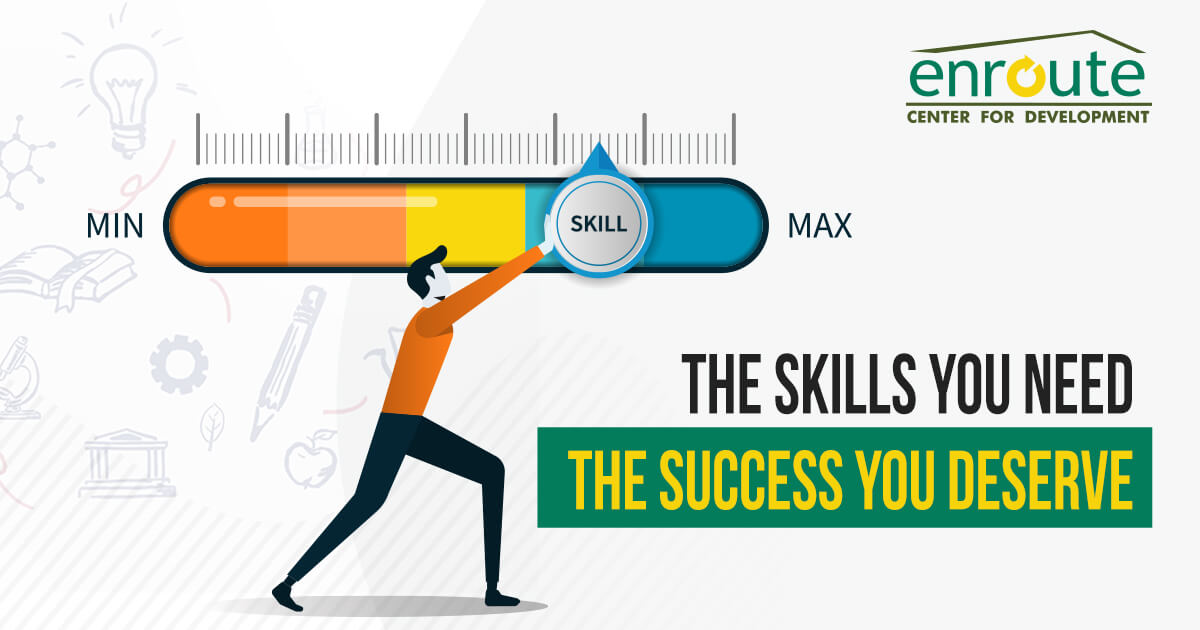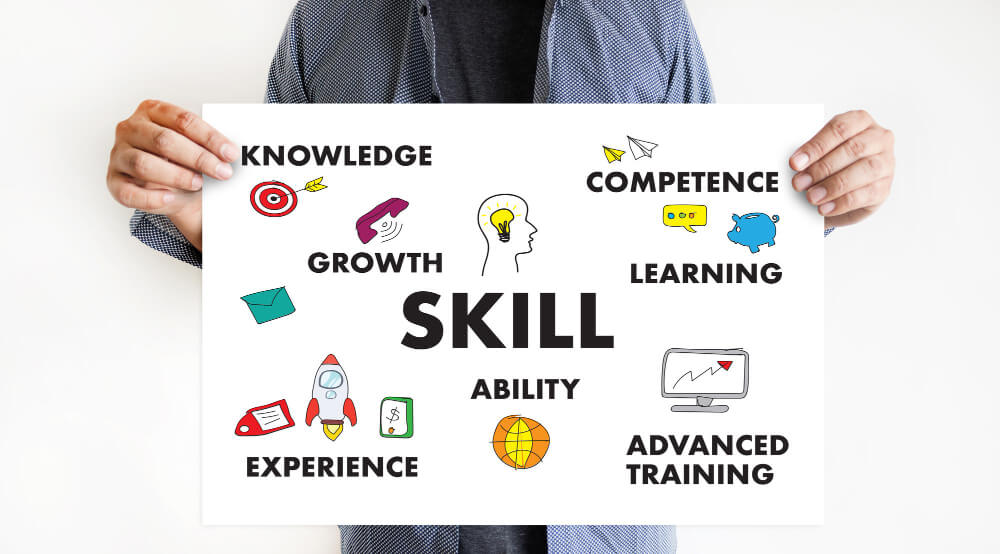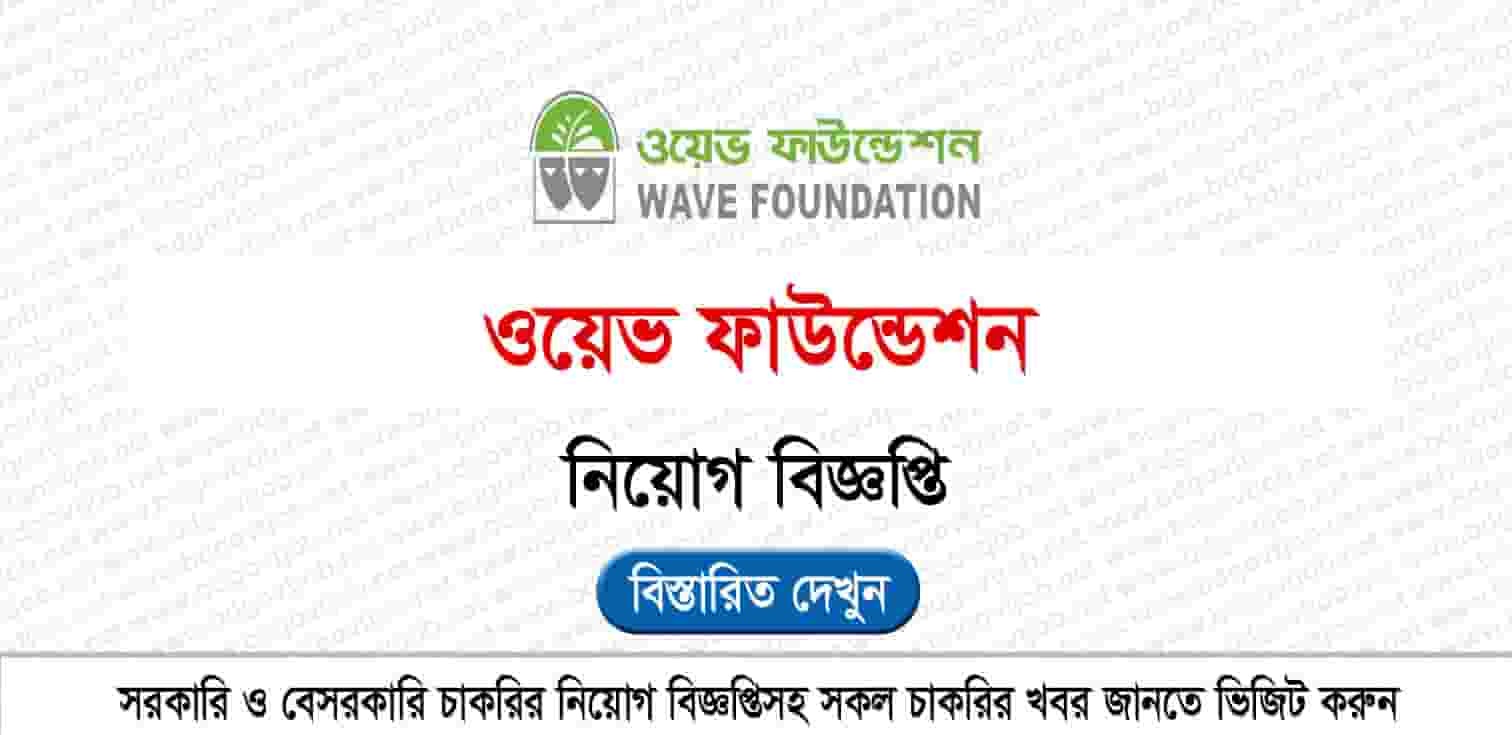Welcome to our blog on the importance of skills development training. In today’s rapidly changing world, investing in yourself and your skillset is more important than ever. Skills development refers to the process of acquiring and improving the abilities and knowledge necessary to carry out complex activities or job functions effectively. It involves identifying gaps in your skills and making efforts to improve them through training and education on related topics.
Skills development is not just a matter of choice; it is essential for personal and professional growth. By developing your skills, you can enhance your performance, adapt to new challenges, and stay ahead in the ever-evolving labor market. In this blog, we will explore the different types of skills, the importance of skills development in today’s economy, strategies for practical skills development, and the benefits of investing in skills development training for young people.
Whether you are a student, a professional, or someone looking to switch careers, skills development is a pathway to success. It can open doors to new opportunities, improve job satisfaction, and give you a competitive edge in the job market. At Enroute Center for Development (ECDL), we have a team of highly skilled and educated faculty members and trainers who provide top-notch training to all trainees, transforming them into genuinely skilled workers. Our employment and field service officers also offer assistance in securing jobs both at home and abroad. So, let’s dive in and discover why skills development training at ECDL matters.
What is skills training?
Skills training, also known as skills development, refers to the process of acquiring and improving specific abilities and knowledge that are necessary for carrying out complex activities or job functions effectively. It involves identifying the gaps in your skillset and making efforts to improve them through structured training programs or vocational education, including specialized technical and cognitive skills as well as entrepreneurship skills.
Skills development can be categorized into three main types: cognitive skills, technical skills, and interpersonal skills. Cognitive skills relate to the mental processes involved in understanding and taking action. These skills include sustained attention, response inhibition, speed of information processing, cognitive flexibility, working memory, and more.
Technical skills, on the other hand, are measurable and teachable abilities that are job-specific. They are acquired through practical experience and expertise in performing digital and physical tasks. Examples of technical skills include writing, reading, math, using computer programs, and more.
Interpersonal skills, also known as soft skills, are the abilities to navigate interpersonal and socio-emotional situations effectively. These skills include leadership, communication, teamwork, adaptability, and emotional intelligence.
Skills development is crucial in today’s rapidly changing labor market and global economy. Technological advancements and the evolving nature of work require individuals to update their skills to stay relevant and competitive continuously. By investing in skills training, individuals can bridge the skills gap, enhance their career prospects, and contribute to the overall growth of the workforce, ultimately helping them face challenges in adapting to work-related changes.
The Importance of Skills Development in Today’s Economy
Skills development plays a critical role in today’s economy, which is characterized by rapid technological advancements and a highly competitive labor market. As new technologies emerge and industries evolve, the demand for specific skills changes, creating a skills gap between the available workforce and the job market requirements.
To thrive in this dynamic environment, individuals must continuously update their skills and adapt to new challenges. Skills development, also known as competencies, enables individuals to stay ahead of the curve and meet the evolving needs of the global economy. It equips them with the knowledge and abilities necessary to navigate complex work environments and contribute effectively to their organizations.
Technological advancements have significantly impacted the nature of work. Automation, artificial intelligence, and machine learning have revolutionized various industries, leading to the creation of new jobs and the transformation of existing roles. To remain employable, individuals must develop the technical skills required in these emerging fields.
Additionally, the workforce is becoming increasingly diverse and globalized. Collaboration and effective communication are essential for working in multicultural teams and cross-functional environments. Interpersonal skills, such as leadership, teamwork, and adaptability, are becoming increasingly valuable in the job market.
Skills development not only benefits individuals but also contributes to the overall growth of the workforce. A well-equipped workforce can drive innovation, productivity, and economic development. By investing in skills development, organizations can ensure that their employees are prepared for the challenges of the future and can contribute to the success of the business, making it a top priority for organizations and institutions like the World Bank Group.
In the next section, we will explore the critical areas for personal and professional growth and identify the technical and soft skills in high demand in today’s labor force.
Identifying Key Areas for Personal and Professional Growth
Identifying the critical areas for personal and professional growth is essential for practical skills development. It involves understanding the skills that are in high demand in the labor market and aligning them with your own goals and interests. Focusing on these critical areas can enhance your career prospects and stay relevant in today’s rapidly changing economy.
Technical Skills That Are in High Demand
In today’s labor force, specific technical skills are in high demand due to the evolving nature of industries and the increased reliance on technology. Acquiring these skills can significantly enhance your career prospects and make you a valuable asset to employers. Here are some technical skills that are currently in high demand:
- Data analysis and interpretation: With the increasing availability of data, organizations require individuals who can analyze and interpret data to make informed decisions and drive business growth.
- Programming and software development: In the digital age, programming and software development skills are highly sought after, as they are essential for building and maintaining software applications and websites.
- Cybersecurity: As cyber threats evolve, organizations need individuals to protect their systems and data from unauthorized access and cyber-attacks.
- Digital marketing: With the rise of online platforms and social media, digital marketing skills are in high demand. Organizations are looking for individuals who can effectively market their products and services in the digital space.
- Project management: Effective project management skills are crucial for successfully executing complex projects within budget and time constraints.
By developing these technical skills, you can position yourself as a valuable asset in the job market and increase your chances of career advancement. Technical skills are constantly evolving, so staying updated with industry trends and learning throughout your career journey is essential.
Soft Skills That Enhance Career Prospects
In addition to technical skills, soft skills play a vital role in enhancing career prospects. Soft skills are interpersonal and personal attributes that enable individuals to navigate the job market and work collaboratively with others effectively. Here are some soft skills that employers highly value:
- Communication: Strong communication skills, both verbal and written, are essential for effective collaboration and conveying ideas and information.
- Leadership: Leadership skills encompass the ability to inspire and motivate others, make sound decisions, and effectively manage teams.
- Adaptability: The ability to adapt to new situations, learn quickly, and embrace change is highly valued in today’s rapidly evolving job market.
- Problem-solving: Employers value individuals who can think critically, analyze problems, and propose innovative solutions.
- Time management: Effective time management skills enable individuals to prioritize tasks, meet deadlines, and maximize productivity.
Developing these soft skills can improve your job prospects and make you stand out in the competitive job market. Employers value individuals who possess a combination of technical and soft skills, as they contribute to a well-rounded and adaptable workforce.
The Role of Continuous Learning in Career Advancement
Continuous learning plays a crucial role in career advancement. In today’s rapidly changing economy, industries and job requirements are constantly evolving. By continuously updating your skills and knowledge, you can stay relevant in the job market and seize new opportunities for growth and advancement. Lifelong learning, focusing on inclusivity, is a crucial strategy for staying competitive and maintaining a successful career.
Lifelong Learning as a Career Strategy
Lifelong learning is a career strategy that involves continuously acquiring new knowledge and skills throughout your professional journey. It is an ongoing process of upskilling and reskilling to adapt to changing job requirements and industry trends. Here are some reasons why lifelong learning is crucial for career success:
- Adaptability: Lifelong learning enables individuals to adapt to new technologies, industry trends, and job requirements, ensuring their continued relevance in the job market.
- Career advancement: Continuous learning opens up new opportunities for career growth and advancement. By expanding their skills, individuals can qualify for higher-level positions and take on more challenging roles.
- Personal growth: Lifelong learning fosters personal development and self-improvement. It allows individuals to explore new interests, develop new passions, and broaden their horizons.
- Professional networking: Learning new skills and attending training programs provides opportunities for networking with professionals in your field. Building connections can lead to valuable collaborations, mentorship, and career opportunities.
In today’s fast-paced and competitive job market, lifelong learning is essential for staying ahead and remaining relevant throughout your career journey. By embracing continuous learning, you can unlock new possibilities, enhance your skills, and achieve long-term career success.
Online Platforms and Resources for Skill Acquisition
In the digital age, there are numerous online platforms and resources available for acquiring new skills and knowledge. These platforms offer flexibility, accessibility, and a wide range of courses and training programs. Here are some popular online platforms for skill acquisition:
- Online Courses: Platforms like Coursera, Udemy, Sudoksho and LinkedIn Learning offer a wide range of online courses in various subjects, allowing individuals to learn at their own pace and convenience.
- Learning Management Systems (LMS): Many organizations and educational institutions use LMS platforms to deliver online training and educational content. LMS platforms provide a structured learning environment and enable tracking of progress and completion.
- Social Media: Social media platforms like LinkedIn, Twitter, and YouTube offer valuable resources, industry insights, and networking opportunities. Following industry experts and participating in online communities can enhance your knowledge and skills in specific areas.
These online platforms and resources provide individuals with the flexibility to learn at their own pace and access valuable educational content from anywhere in the world. By utilizing these resources, you can acquire new skills, stay updated with industry trends, and enhance your career prospects.
Overcoming Common Barriers to Skills Development
Skills development can sometimes be challenging due to various barriers. In this section, we will explore common barriers and strategies for overcoming them. By addressing these barriers, individuals can maximize their potential for practical skills development.
Time Management Strategies for Busy Professionals
Time management is a common barrier to skills development, especially for busy professionals. Here are some strategies for effective time management:
- Prioritize tasks: Identify the most critical tasks and allocate time accordingly. Focus on high-priority activities that align with your goals and eliminate or delegate non-essential tasks.
- Set realistic goals: Set specific, measurable, achievable, relevant, and time-bound (SMART) goals for skills development. Break them down into smaller, manageable tasks to avoid feeling overwhelmed.
- Create a schedule: Plan your day and allocate specific time slots for skills development activities. Stick to the schedule and avoid distractions to maximize productivity.
- Eliminate time-wasting activities: Identify and eliminate activities that consume your time without adding value. Minimize distractions, such as excessive social media use, and create a conducive work environment.
By implementing effective time management strategies, busy professionals can carve out dedicated time for skills development and make consistent progress toward their goals.
Addressing the Fear of Failure and How to Move Past It
The fear of failure can hinder skills development and prevent individuals from taking risks and pursuing new opportunities. Here are some strategies for addressing the fear of failure:
- Embrace a growth mindset: Adopt a mindset that views failure as an opportunity for learning and growth. Recognize that setbacks and mistakes are part of the learning process and an essential step toward improvement.
- Cultivate resilience: Build resilience by developing coping strategies, managing stress, and seeking support from mentors, colleagues, or friends. Resilience enables individuals to bounce back from failures and setbacks and continue their skills development journey.
- Break tasks into smaller steps: Breaking down skills development tasks into smaller, manageable steps can make them less daunting and more achievable. Celebrate small victories along the way to boost confidence and motivation.
By addressing the fear of failure and developing resilience, individuals can overcome barriers and move forward in their skills development journey.
Case Studies: Success Stories of Skills Development
In this section, we will explore case studies and success stories highlighting the transformative impact of skills development in Bangladesh. These real-life examples demonstrate how skills development can lead to career transformation, personal growth, and increased opportunities.
Transforming Careers through Technical Training
Bangladesh’s manufacturing sector needed more skilled technicians, slowing production and limiting growth potential. The government recognized the urgent need to bridge this skill gap and launched the “Technical Skills for Manufacturing” program.
This intensive initiative provided focused training in essential areas like machinery operation, safety protocols, and quality control. The results were transformative: 75% of program graduates secured well-paying jobs in manufacturing within just six months of completion. On average, graduates saw a 20% increase in their wages and received a certificate, empowering them to better support their families.
Employers were equally enthusiastic, with 90% reporting high satisfaction with the skills and preparedness of the graduates. One graduate, Amina Khatun, shared her experience, “Before this training, I was struggling to find a good job. Now, I have the skills to support my family and feel confident about my future.”
This success story highlights the power of targeted technical training to uplift individuals, boost industries, and contribute to the economic growth of Bangladesh.
The Impact of Soft Skills Training on Professional Growth
Many Bangladeshi businesses need help with workplace conflict and low employee morale, hindering productivity and growth. To address these issues, a comprehensive soft skills training program was introduced, focusing on conflict resolution, empathy, and team-building. The results were remarkable.
Participants reported a significant improvement in their ability to navigate difficult conversations, foster a positive work environment, and collaborate effectively with colleagues.
This transformation in soft skills had a cascading effect: employee satisfaction scores increased by 20%, instances of workplace conflict decreased by 35%, and overall team productivity surged.
One participant, Farhana Begum, noted, “This training helped me understand my colleagues better and build stronger working relationships. Our team feels more cohesive and motivated than ever before.”
This success story demonstrates the power of soft skills training to create a more harmonious, efficient, and thriving workplace in Bangladesh.
Strategies for Effective Skills Development
To ensure practical skills development, it is essential to utilize specific strategies. In this section, we will explore techniques that can maximize the effectiveness of skills development and lead to long-term success.
Setting Realistic Goals and Milestones
Setting realistic goals and milestones is crucial for practical skills development. Here are some strategies to consider:
- Define specific and measurable goals: Clearly define what you want to achieve through skills development and ensure that your goals are measurable. This will help you track your progress and stay motivated.
- Break goals into smaller milestones: Breaking down larger goals into smaller milestones makes them more manageable and allows you to celebrate achievements along the way.
- Create a timeline: Establish a timeline for achieving your goals and milestones. This will help you stay accountable and maintain focus.
Setting realistic goals and milestones allows you to stay motivated, measure your progress, and develop practical skills.
Creating a Personalized Learning Plan
Creating a personalized learning plan is essential for practical skills development. Here are some steps to consider:
- Assess your current skillset: Identify your strengths and areas for improvement. This will help you determine which skills you should prioritize for development.
- Set learning objectives: Based on your assessment, set clear learning objectives that align with your career goals and aspirations.
- Identify learning resources: Research and identify the best resources, such as online courses, workshops, or mentors, to acquire the skills you need.
- Develop a study schedule: Create a study schedule that allows you to allocate dedicated time for learning activities. Consistency is critical for practical skills development.
By creating a personalized learning plan, you can tailor your skills development journey to your specific needs, maximize your learning potential, and achieve your career goals.
The Benefits of Investing in Skills Development Training
Investing in skills development training offers numerous benefits for individuals in today’s competitive job market. In this section, we will explore some of the key benefits.
Increased Job Satisfaction and Career Opportunities
Skills development can lead to increased job satisfaction by enabling individuals to perform their job functions more effectively and efficiently. When individuals have the necessary skills and knowledge to excel in their roles, they are more likely to feel fulfilled and satisfied in their work.
Furthermore, skills development expands career opportunities. By continuously updating and enhancing their skills, individuals become more marketable and open doors to new career paths. Skills development can qualify individuals for higher-level positions, promotions, or career transitions.
The Competitive Edge in Job Markets
Investing in skills development training gives individuals a competitive edge in the job market. As employers increasingly value individuals who possess a combination of technical and soft skills, those who have invested in skills development stand out from the competition.
Skills development also helps bridge the skills gap. In a rapidly changing job market, there often needs to be a match between the skills employers seek and the skills individuals possess. By proactively developing their skills, individuals can close this gap and position themselves as valuable assets to employers.
In addition to job satisfaction, career opportunities, and a competitive edge, skills development training offers personal growth, adaptability, and resilience. It enables individuals to continuously learn and evolve, making them better equipped to navigate the challenges of the future.
Conclusion
In a rapidly evolving economy, investing in skills training is crucial for personal and professional growth. By identifying critical areas for development, embracing continuous learning, and overcoming common barriers, individuals can enhance their job prospects and climb the career ladder. Through tailored learning plans and setting realistic goals, one can gain a competitive edge in the job market and unlock new opportunities. Ultimately, dedicating time to skills development not only boosts job satisfaction but also equips individuals with the tools needed for success. Embrace the journey of lifelong learning and watch your career flourish.
Frequently Asked Questions (FAQ)
What are the best ways to identify skills I need to develop?
To identify the skills you need to develop, start by conducting a skills assessment. Evaluate your current skillset, identify areas for improvement, and align them with your personal growth and career goals.
How much time should I dedicate to skills development weekly?
The amount of time you should dedicate to skills development depends on your schedule and commitments. However, it is recommended to allocate at least a few hours each week for continuous learning and skill development.
Can skills development training help in changing careers?
Yes, skills development training can be instrumental in changing careers. By acquiring new skills or enhancing existing ones, individuals can pivot to new industries or roles, making a successful career transition.
Are online courses practical for skills development?
Yes, online courses can be highly effective for skills development. They offer flexibility, a wide range of subjects, and access to industry experts. However, choosing reputable platforms and courses that align with your learning objectives is essential.
What are the benefits of investing in skills development training?
Investing in skills development training offers numerous benefits, including increased job satisfaction, career opportunities, and a competitive edge in the job market. It also contributes to personal growth, adaptability, and resilience.
How can skills development training enhance my career prospects?
Skills development training enhances career prospects by equipping individuals with the necessary abilities and knowledge to excel in their roles. It positions individuals as valuable assets to employers and opens doors to new opportunities for growth and advancement.
Can skills development training help with personal growth and self-improvement?
Yes, skills development training goes beyond professional benefits and contributes to personal growth and self-improvement. It allows individuals to explore new interests, broaden their horizons, and continuously learn and evolve.
Is skill development training required for graduate students?
Skill development training is beneficial for graduate students as it enhances their employability and prepares them for the job market. It allows them to acquire the skills necessary to excel in their chosen fields and stand out from other candidates.
What are the benefits of skill development?
The benefits of skill development include increased job satisfaction, career opportunities, a competitive edge in the job market, personal growth, adaptability, and resilience. Skill development enhances individuals’ abilities and contributes to the growth of the labor force.
How Did You Get Into the Learning and Development Field?
As an expert in the learning and development field, I have always been passionate about education and helping individuals reach their full potential. I pursued a degree in education and gained experience in instructional design and training facilitation. Through my career path, I have had the opportunity to work with diverse learners and organizations, designing and delivering effective training programs. The table below highlights my experience and qualifications in the learning and development field:
|
Year |
Experience/Qualification |
|
2010 |
Bachelor’s Degree in Education |
|
2012 |
Certification in Instructional Design |
|
2014 |
Training Facilitation Experience |
|
2016 |
Master’s Degree in Learning and Development |
|
2018 |
Published articles on skills development and training |
|
2020 |
Established as an expert in the field, working with clients to design and deliver effective training programs |
I am committed to staying updated with the latest trends and research in the field of learning and development to provide valuable insights and guidance to individuals and organizations seeking to invest in skills development.












